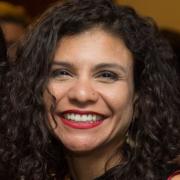Thoughts on Health Care
Cross-posted at MotherTalkers.
This is an historical moment that I can't get out of my head so my apologies in advance for writing, yet, another piece on healthcare reform. This is an issue near and dear to my heart and one of three issues -- education and higher education spending are the other two -- that I would be willing to even add to the national deficit to support.
My parents helped me pay for almost one year of college -- the first year -- and then they did not pay a dime. They had no money. They were not allowed to even own a credit card. The reason? In 1991 they filed for bankruptcy after failing to pay for medical bills following the birth of my sister Nelsy's premature birth. It haunted us in more ways than one. Bill collectors called our home in Miami all the time. Often we went without lights, electricity or phone service because my parents had no money to pay the bills. We ate rice and beans every day.
Initially, I agreed with many of the tea party protesters of today. I thought my family, who worked so damn hard, were being screwed over by people who weren't working and got medicaid. We got social services, sure, including food stamps. But we did not get WIC or medicaid, for example, because my father had a job. Oh, I resented it.
Then I moved to a largely white and affluent area in New Hampshire -- my father got a job at a plant in northern Massachusetts -- where we were the poor brown people. I listened closely to my peers, who had solidly middle class families with college degrees. They were against affirmative action, welfare, universal healthcare and "big government spending." I listened even more closely. They did not want to pay for social services for "those people." Initially, I agreed with them. Then I listened more closely.
It sounded like, wait a minute, "those people" were...us! They were African American and Latino and lived in inner cities. "Those people," for them, did not work hard and live in nice suburbs like the one we inhabited. The description of "those people" sounded eerily like my parents -- my Cuban mill worker father and babysitting/at-home Puerto Rican mother -- who moved in from a gritty urban center to seek a better future for their kids. Even worse, we were a Catholic family with four children and no money. Yet, for my peers we were brown folks mooching off the system and looking for a handout. To this day, my pet peeves are the use of the words "those people" or "you people," or pardon me, but white people receiving public services who say they are more deserving of it than others because they "work hard." Last time I checked, the hardest jobs -- whether it's toiling in the fields in California or working the assembly line at the meat-packing plant in Nebraska -- are held by many black and brown folks who also happen to be uninsured. Those people.
I will get off my soap box now. I know there is a lot of work to be done on this legislation. It isn't perfect. (Then again, neither were social security or medicare when they first passed.) My husband reminded me of this last night as we watched C-Span on our computers with the volume way up. We have only one TV and the kids were hogging it up. But this first very important step left me feeling emotional and melancholic. As a mother -- and I am sure I speak for my parents as grandparents -- I feel relief for my children. I am confident that medical bills won't keep us from paying for their college.

The views and opinions expressed in this post are those of the author(s) and do not necessarily reflect those of MomsRising.org.
MomsRising.org strongly encourages our readers to post comments in response to blog posts. We value diversity of opinions and perspectives. Our goals for this space are to be educational, thought-provoking, and respectful. So we actively moderate comments and we reserve the right to edit or remove comments that undermine these goals. Thanks!